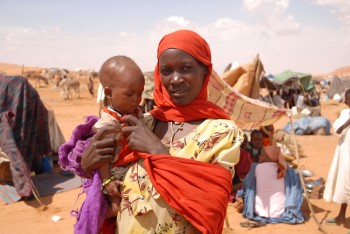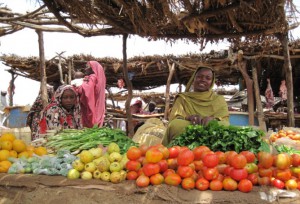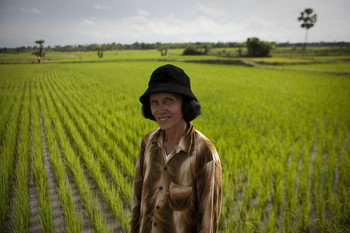Mothers: A great return on investment
Investing in women is the key to feeding the planet and to economic growth.
As a mother of two, I now know that all my years of schooling did not prepare me nearly as well for working life as being a mother. As all mothers know, mothers are the ultimate project managers and multi-taskers, juggling many tasks at once, carrying out strategies but always being nimble to change course on a dime in the face of a temper tantrum, dirty diaper, or sick child. But for mothers in the developing world there are even bigger and more dire challenges, like where the next meal will come from, how to get medicine for a sick child, or finding potable drinking water. And yet, mothers in the developing world learn to cope with these challenges daily. That’s why so many are now realizing that investing in women is the key to feeding the planet and to economic growth.
According to a recent Gates Foundation report, “When women don’t control resources and income, their households may suffer from malnutrition. Men are less likely than women to reinvest their income in the health of the family.” In a report by the Food and Agriculture Organization of the UN, women are deemed to be the key to food security indicating that “if women had equal access to agricultural resources and services, food security would be greatly improved and societies would grow richer, and not only in economic terms.”
But it isn’t just NGO’s and UN bodies claiming a good return on investment when providing resources and opportunities to women, Goldman Sachs, the large investment firm also conducted research with the World Bank and concluded that “investments in women—particularly in education and labor force participation—lead to read GDP growth, as women take their earnings and invest them back in their families and communities.” And just last week the billionaire and investment guru, Warren Buffett also expressed his bullish take on women in an essay published in Fortune magazine where he declares his optimism for America’s future lies with American women, untapped resource!
So to all those mothers and multi-taskers, here is a list of 10 (thought there are undoubtedly more) tasks that women in the developing world take on each day:
1. Child rearing

2. Cooking

3. Growing commodity crops for sale

4. Selling at the market

5. Fetching water

6. Chopping and gathering firewood

7. Laundry

8. Maintaining the house

9. Growing crops for food

10. Caring for elders
